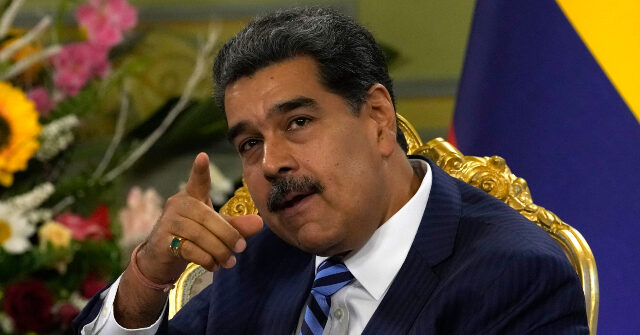Nicolás Maduro, the self-proclaimed socialist dictator of Venezuela, recently vocalized his expectations from the future U.S. administration, asserting that whether Donald Trump or Kamala Harris wins the presidential election, there must be “good faith” dialogue with his regime. In one of his weekly televised programs, Maduro emphasized the need for communication and understanding with his government, which he described as a “Revolutionary Government” rooted in the “Bolivarian” ideology. He downplayed the significance of the U.S. elections, asserting that Venezuela would continue to pursue its independent path, free from U.S. interference. His comments reflect a longstanding anti-American stance prevalent in his administration, portraying the United States as a threat to Venezuelan sovereignty.
Maduro’s regime maintains close ties with other anti-U.S. allies such as China, Russia, and Iran, while also suggesting that U.S. influence has sought to destabilize Venezuela through purported coup attempts. He painted a dystopian picture of a “fascist model” that he claims is being imposed by Washington and likens it to domestic leadership choices in Latin America, criticizing the electoral outcomes in countries like Argentina and Ecuador. His accusations underscore a broader narrative that positions U.S. foreign policy as inherently aggressive toward leftist governance in the region, despite the significant failings of his own government.
Since taking power after Hugo Chávez’s death in 2013, Maduro has faced mounting criticism and claims of human rights violations, including his alleged involvement in drug trafficking operations through the “Cartel of the Suns.” The United States has placed a $15 million bounty on Maduro for information leading to his arrest, citing his regime as a key player in international drug trade aimed at flooding the U.S. with cocaine. This context of criminal activity, compounded with allegations of authoritarian rule and electoral fraud, has led to the imposition of various sanctions against his government, particularly by the Trump administration, which has been framed by Maduro as a form of U.S. imperialism.
As accusations against him mount, Maduro has attempted to shift blame for Venezuela’s economic collapse to external factors, especially the sanctions imposed by the U.S. While these sanctions have surely affected the economy, the severe mismanagement and corruption under his government have played a much more significant role. Nevertheless, Maduro’s narrative suggests that these U.S. sanctions are directly responsible for the dire humanitarian crisis, a rhetoric that resonates with some international allies who share his anti-U.S. sentiments.
In contrast, the Biden-Harris administration has adopted a more conciliatory approach towards Maduro, engaging in dialogues that culminated in the “Barbados Agreement,” which aims to facilitate a “free and fair” election in Venezuela in 2024. This agreement reflects a strategic shift in U.S. foreign policy, with the administration offering sanctions relief in exchange for promises of reforms from Maduro. However, these negotiations have seen little success, as Maduro has failed to adhere to his commitments while simultaneously cracking down on dissent and holding a contentious presidential election that drew international condemnation.
Further complicating the diplomatic landscape, the Biden administration has made several controversial decisions, such as the release of key figures associated with Maduro’s regime, including major alleged drug traffickers and financial operatives. These actions, while purportedly aimed at addressing root causes of migration by improving conditions in Venezuela, have led to considerable skepticism about the effectiveness and morality of the Biden administration’s Venezuela policy. Critics argue that these concessions empower Maduro rather than curtailing his authoritarianism, leaving the future trajectory of Venezuelan governance and U.S.-Venezuela relations uncertain amidst ongoing strife and demands for accountability.

